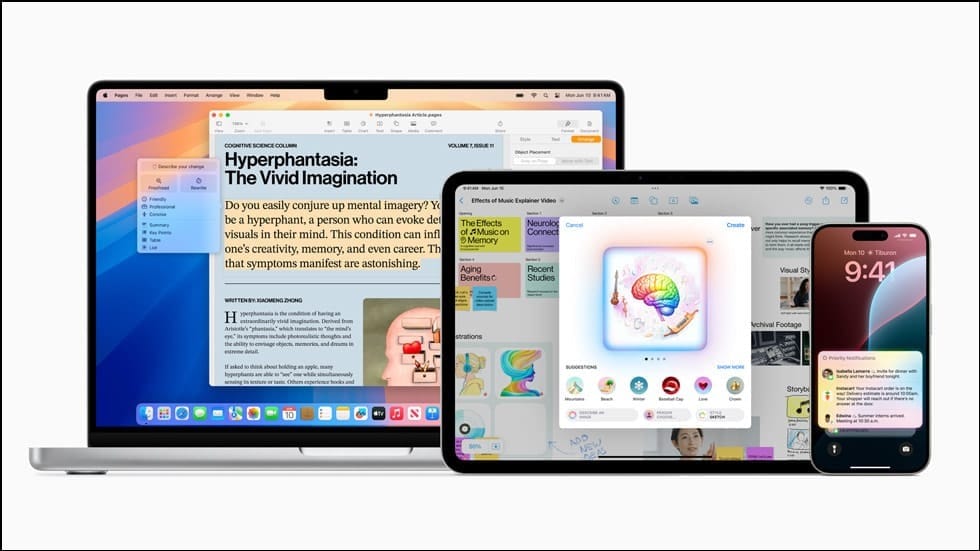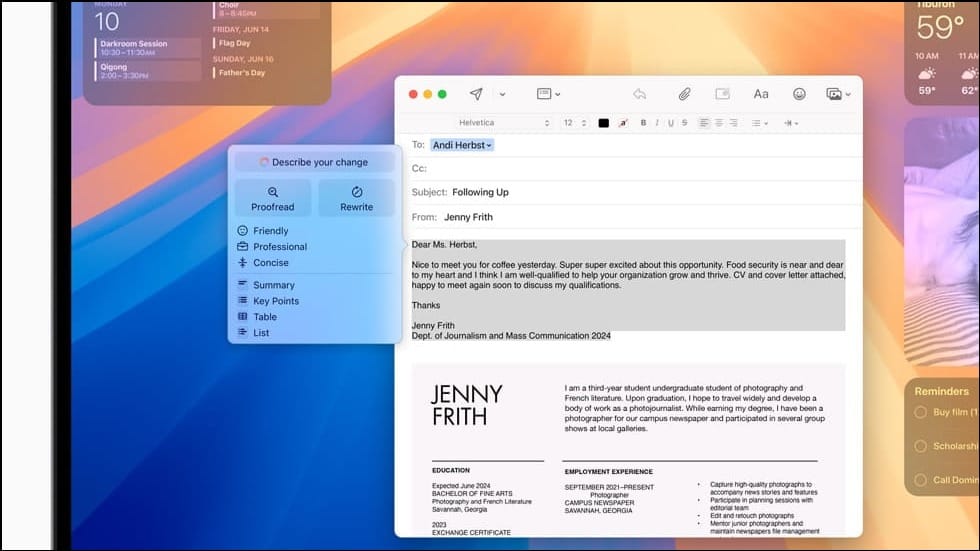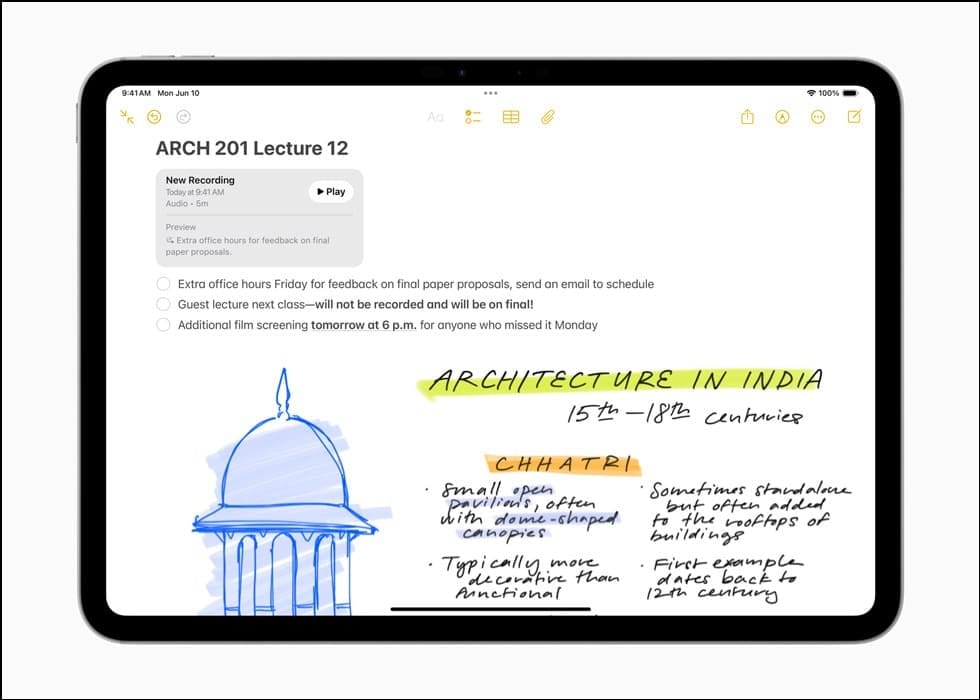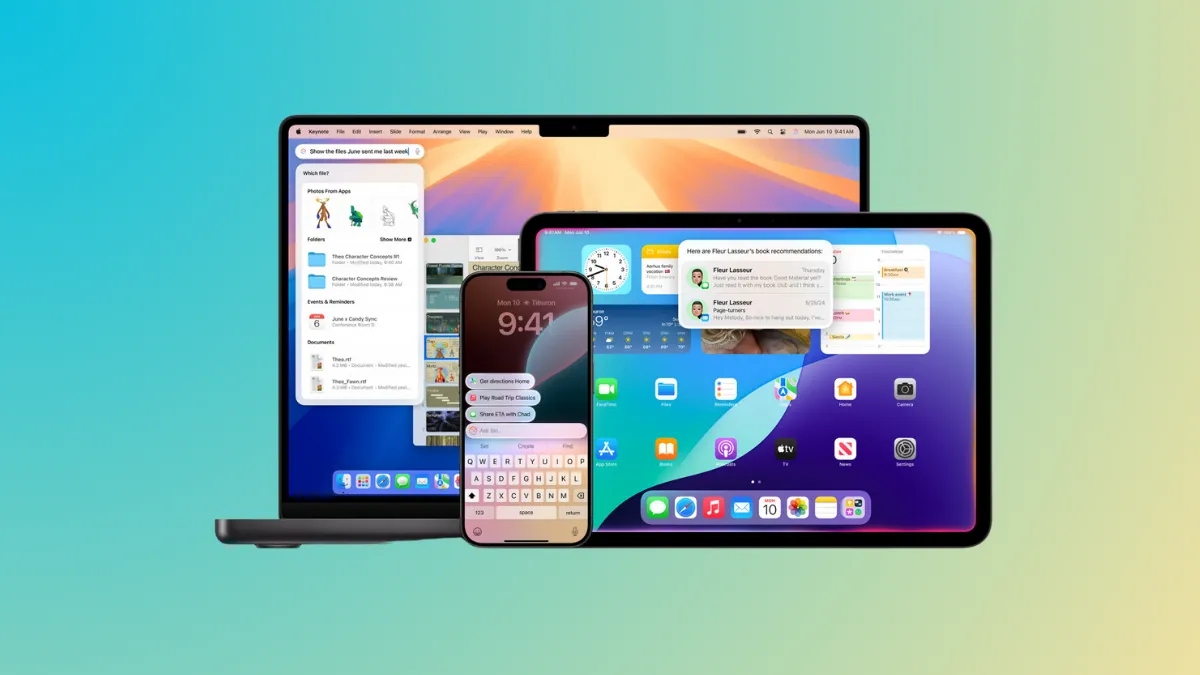Apple recently concluded its Worldwide Developers Conference Keynote for this year, announcing updates to its various platforms, including iOS, iPadOS, VisionOS, and macOS. One of the biggest announcements from the Cupertino-based company was the integration of AI into its services, much like its competitors Google and Microsoft announced last month.
With this, Apple, like the other major tech companies, has jumped onto the generative AI bandwagon. However, instead of using the term "artificial intelligence" for its generative software, Apple says the software is more like "personal intelligence" integrated into its devices and has named it Apple Intelligence.
What is Apple Intelligence?
Apple Intelligence is a system that will bring the power and capabilities of generative AI models to Apple devices, like iPads, iPhones, and Macs. The key feature that distinguishes it from other generative AI models is its emphasis on personal context. Thanks to this, it can provide information and assistance that is more relevant and useful.
Apple Intelligence will be integrated into iOS 18, iPadOS 18, and macOS Sequoia, and will be available in beta later this year. The generative AI has been developed to utilize the power of Apple silicon, allowing it to understand what the user wants to do, and help them take the required action, like generating text and images, or simplify everyday tasks, making them easier to complete.
Since it will be integrated systemwide with Apple's platforms, Apple Intelligence will work inside and outside different apps to help users perform tasks with greater ease. It will possess all of the capabilities we have come to associate with AI models, including text and image generation, context-based suggestions, and more. Users will be able to find answers to questions, get things done via commands, and interact with Siri more naturally.

Spotlight on Privacy with AI
Apple is known for its privacy features, and it is no different with Apple Intelligence. While the AI can understand personal contexts and different user needs and preferences, it ensures complete user privacy is maintained thanks to Private Cloud Compute. This allows the model to scale and adapt to different requirements while ensuring it can only access information that is needed to complete the task at hand.
While the company will be integrating various AI models, starting with ChatGPT, using the AI model will not require a subscription. Apple's virtual assistant Siri will automatically determine whether providing an answer to a user query requires ChatGPT. In case it does, it will first ask the user for approval before sharing any information with the AI model, and user data is not shared or stored with Apple.
Small generative AI algorithms, which will be a part of Apple Intelligence, will continuously run on Apple devices to protect user data. All generative AI processes will take place on-device on Apple's M-series or A17-powered machines and in its proprietary cloud. Apple also said private investigators can inspect the code on its servers to verify user privacy.
Capabilities of the Generative AI Model
Apple Intelligence can help you do a lot of things more quickly and easily than ever before. It can generate images in different styles in various applications, including Pages, Keynote, Freeform, Notes, Messages, and others. Additionally, it can perform actions like opening apps like Photos and selecting specific images.
Apple has termed this feature Image Playground, which allows users to generate images as sketches, illustrations, or animations. In addition to that, there is Genmoji, which allows you to create custom emojis that can be used in different apps like Messages.
Another area where the capabilities of Apple Intelligence will be apparent is Siri, which will be updated so that interacting with her becomes more natural. It will be able to respond better to natural language queries and commands, remember references and past conversations, and you can now type to interact with the chatbot instead of just relying on speech.
The digital assistant will also be able to view links, PDFs, notes, emails, messages, and more. Aside from that, Apple Intelligence is bringing a new feature called Writing Tools to Apple devices. Writing Tools can help you write better on your device by improving the grammar and readability of what you write. Users will also be able to use it to adjust the tone of their writing, so they can make it sound more professional or friendly.
It will also offer writing tips when you are using apps like Messages or sending emails. Writing Tools also include Rewrite, which lets you choose from various versions of text that they have written, and Summarize, which can condense text pieces into lists, tables, or bullet points.

Apple Intelligence will also help make things easier in apps like Mail, where it will show you the most urgent emails on a priority basis. You do not need to open each email to view its contents, as the AI model will generate and display summaries that you can view and respond to quickly. Speaking of which, the Smart Reply feature will help you craft responses quickly by offering suggestions based on the contents of the email.
Another instance where Apple Intelligence will come in handy is in apps like Phone and Notes, where you can transcribe, record, and summarize audio. It can generate a summary of what was discussed in a call, making it easy to remember important things.

These are just some of the capabilities that Apple Intelligence will bring to supported devices, and the list is only expected to grow in the future.
With Apple Intelligence, Apple has finally decided to embrace AI as the future of its ecosystem, much like what other companies have done with their respective generative models. Apple Intelligence will be integrated into all of the company's most popular platforms, including iOS 18, iPad 18, and macOS Sequoia.
While it is obvious that Apple's foray into AI will transform how users interact with its ecosystem, it is not known how extensive the change will be. Unlike Google and Microsoft, Apple decided not to make a lot of noise about AI technologies right from the very start. It remains to be seen whether the introduction of Apple Intelligence and its partnership with OpenAI will change things.


